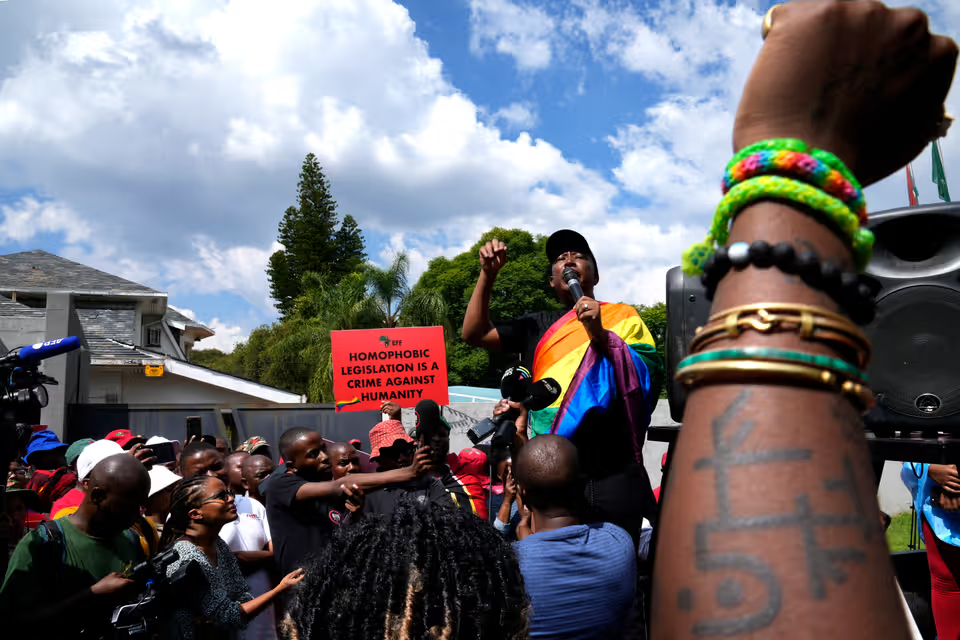On Tuesday, World Bank announced that it will not provide new loans to Uganda due to its anti-LGBTQ laws. “Uganda’s Anti-Homosexuality Act fundamentally contradicts the World Bank Group’s values,” the Bank said in a statement seen by thecondia.com.
The Ugandan law is regarded as one of the harshest anti-LGBTQ laws in the world.
“We believe our vision to eradicate poverty on a livable planet can only succeed if it includes everyone irrespective of race, gender, or sexuality. This law undermines those efforts. Inclusion and non-discrimination sit at the heart of our work around the world.”
According to the World Bank, Uganda will not receive any new public financing pending the test of what it describes as “the efficacy of the additional measures”.
In May, Uganda’s President Yoweri Museveni signed into law a bill criminalising same-sex conduct, including potentially the death penalty for those convicted of “aggravated homosexuality”.
The Ugandan government has come under criticism since the passing of the bill. Prior to this latest sanction, the World Bank sent a fact-finding mission to Uganda last week following an international appeal by over 170 organisations to suspend future lending to Uganda following the enactment of the law.
Even before the fact-finding mission, the World Bank through its Senior External Affairs Officer, Zandile Ratshitanga said it was “highly concerned with Uganda’s enactment of the 2023 Anti-Homosexuality Act”.
It is important to note that this is not the first time the World Bank is cracking down on Uganda or an African over anti-LGBTQ policies. In 2014, the World Bank announced a delay of a $90 million loan to Uganda’s healthcare sector in response to a similar law. At the time, the then World Bank President Jim Kim wrote an op-ed stating that discrimination is bad for economies, as well as for societies and individuals.
The World Bank suspended all missions to Tanzania in 2018 due to discrimination against LGBTQ people, the ban was later lifted in November of the same year.
The latest crackdown from the World Bank on Uganda follows other sanctions that the country has come under since the law was passed two months ago. In June, the US government imposed travel restrictions on Ugandan officials in response to the legislation. US President Joe Biden describes it as “a tragic violation of universal human rights—one that is not worthy of the Ugandan people, and one that jeopardizes the prospects of critical economic growth for the entire country”.
Uganda defends anti-LGBTQ law
“Nobody will move us,” these are the words of President Museveni despite continued Western criticism including threats by President Biden and others to cut aid to the country. “If they cut aid, we will sit down and discipline our expenditure and rearrange our budgets. If they interfere with our trade, we will trade with others,” the Ugandan president maintained.
According to Museveni, he consulted widely to try and determine whether homosexuality was genetic before signing the law. He added that he had been persuaded—by what he called expert advice—that it was not, and described it instead as “psychological disorientation”.
“The problem is that, yes, you are disoriented. You have got a problem for yourself. Now, don’t try to recruit others. If you try to recruit people into disorientation, then we go for you. We punish you,” he said.
What does this mean for other African countries?
Globally, same-sex relations are criminalised in 64 countries. In Africa, only 22 of the 54 countries on the continent allow homosexuality.
South Africa, for example, was the first country in the world to prohibit discrimination against LGBTQ+ populations in its constitution, and Angola, Botswana, and Mozambique have all decriminalised homosexuality in the last decade. Most recently, in May 2023, the Supreme Court of Namibia ruled to recognise same-sex couples who marry abroad.
With more African countries declining to adopt pro-LGBTQ+ laws due to their religious and cultural beliefs, does it mean the World Bank will roll out more sanctions or these latest sanctions on Uganda will compel them to adopt pro-LGBTQ laws?
This is a developing story








